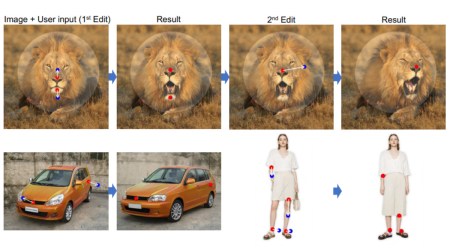 |
| amazon link |
Likewise, I too have been nosing around trying to develop a sense of humanity's cultural development organically via evolution, culturally, via religion, and in the next segment, sociologically, via civilization... of which I continue to urge present cultures towards the building of ecological civilizations leaning into love, social justice and equality, environmental care and restoration, and generally, to find a new rhythm and balance in our lives more in line with nature's more generative side.Moreover, I've been working through the many positives of AI sentience in recent chatbot posts while also working towards mankind's cultural beliefs about God and religion. Hence, I have posted David Foster's books and video to balance Yuval Harai's sentiments about AI.
Love has two sides to it: (i) It may birth liberty and freedom but may also (ii) birth bondage and destruction. Curiously, Love may bless another or it may harm and destroy another (something I call the "dark side of Love gone wrong"). Similar to Einstein's description of temperature in terms of factors of "no heat" or "coldness"; we might also describe sin and evil in terms of factors of "no Love" or "absence of loving."
A God-filled, divine creation is thus and thus fraught with processual tension. This is what is meant by pancessualism tension which may be either a generative process or a cruel and evil process. Whiteheadian prehension, actuality, and concreasence says that every event increases by one acts of value or removes those acts from any further benefit.
 |
| amazon link |
 |
| amazon link |
FIRST EDITION
Generative modeling is one of the hottest topics in AI. It’s now possible to teach a machine to excel at human endeavors such as painting, writing, and composing music. With this practical book, machine-learning engineers and data scientists will discover how to re-create some of the most impressive examples of generative deep learning models, such as variational autoencoders,generative adversarial networks (GANs), encoder-decoder models, and world models.
Author David Foster demonstrates the inner workings of each technique, starting with the basics of deep learning before advancing to some of the most cutting-edge algorithms in the field. Through tips and tricks, you’ll understand how to make your models learn more efficiently and become more creative.
- Discover how variational autoencoders can change facial expressions in photos
- Build practical GAN examples from scratch, including CycleGAN for style transfer and MuseGAN for music generation
- Create recurrent generative models for text generation and learn how to improve the models using attention
- Understand how generative models can help agents to accomplish tasks within a reinforcement learning setting
- Explore the architecture of the Transformer (BERT, GPT-2) and image generation models such as ProGAN and StyleGAN
SECOND EDITIONGenerative AI is the hottest topic in tech. This practical book teaches machine learning engineers and data scientists how to create impressive generative deep learning models from scratch using Tensorflow and Keras, including variational autoencoders (VAEs), generative adversarial networks (GANs), Transformers, normalizing flows, energy-based models, and denoising diffusion models. The book starts with the basics of deep learning and progresses to cutting-edge architectures. Through tips and tricks, readers can make their models learn more efficiently and become more creative.
- Discover how VAEs can change facial expressions in photos
- Train GANs to generate images based on your own dataset
- Build diffusion models to produce new varieties of flowers
- Train your own GPT for text generation
- Learn how large language models like ChatGPT are trained
- Explore state-of-the-art architectures such as StyleGAN 2 and Vision Transformer VQ-GAN
- Compose polyphonic music using Transformers and MuseGAN
- Understand how generative world models can solve reinforcement learning tasks
- Dive into multimodal models such as DALL.E 2, Imagen and Stable Diffusion for text-to-image generation
The book also explores the future of generative AI and how individuals and companies can proactively begin to leverage this remarkable new technology to create competitive advantage.
Generative Deep Learning, 2nd Edition [David Foster] https://www.oreilly.com/library/view/...Support us! https://www.patreon.com/mlst MLST Discord: https://discord.gg/aNPkGUQtc5 Twitter: https://twitter.com/MLStreetTalkTOC: Introducing Generative Deep Learning [00:00:00]Model Families in Generative Modeling [00:02:25]Auto Regressive Models and Recurrence [00:06:26]Language and True Intelligence [00:15:07]Language, Reality, and World Models [00:19:10]AI, Human Experience, and Understanding [00:23:09]GPTs Limitations and World Modeling [00:27:52]Task-Independent Modeling and Cybernetic Loop [00:33:55]Collective Intelligence and Emergence [00:36:01]Active Inference vs. Reinforcement Learning [00:38:02]Combining Active Inference with Transformers [00:41:55]Decentralized AI and Collective Intelligence [00:47:46]Regulation and Ethics in AI Development [00:53:59]AI-Generated Content and Copyright Laws [00:57:06]Effort, Skill, and AI Models in Copyright [00:57:59]AI Alignment and Scale of AI Models [00:59:51]Democratization of AI: GPT-3 and GPT-4 [01:03:20]Context Window Size and Vector Databases [01:10:31]Attention Mechanisms and Hierarchies [01:15:04]Benefits and Limitations of Language Models [01:16:04]AI in Education: Risks and Benefits [01:19:41]AI Tools and Critical Thinking in the Classroom [01:29:26]Impact of Language Models on Assessment and Creativity [01:35:09]Generative AI in Music and Creative Arts [01:47:55]Challenges and Opportunities in Generative Music [01:52:11]AI-Generated Music and Human Emotions [01:54:31]Language Modeling vs. Music Modeling [02:01:58]Democratization of AI and Industry Impact [02:07:38]Recursive Self-Improving Superintelligence [02:12:48]AI Technologies: Positive and Negative Impacts [02:14:44]Runaway AGI and Control Over AI [02:20:35]AI Dangers, Cybercrime, and Ethics [02:23:42]In this conversation, Tim Scarfe and David Foster, the author of 'Generative Deep Learning,' dive deep into the world of generative AI, discussing topics ranging from model families and auto regressive models to the democratization of AI technology and its potential impact on various industries. They explore the connection between language and true intelligence, as well as the limitations of GPT and other large language models. The discussion also covers the importance of task-independent world models, the concept of active inference, and the potential of combining these ideas with transformer and GPT-style models.Ethics and regulation in AI development are also discussed, including the need for transparency in data used to train AI models and the responsibility of developers to ensure their creations are not destructive. The conversation touches on the challenges posed by AI-generated content on copyright laws and the diminishing role of effort and skill in copyright due to generative models.The impact of AI on education and creativity is another key area of discussion, with Tim and David exploring the potential benefits and drawbacks of using AI in the classroom, the need for a balance between traditional learning methods and AI-assisted learning, and the importance of teaching students to use AI tools critically and responsibly.Generative AI in music is also explored, with David and Tim discussing the potential for AI-generated music to change the way we create and consume art, as well as the challenges in training AI models to generate music that captures human emotions and experiences.Throughout the conversation, Tim and David touch on the potential risks and consequences of AI becoming too powerful, the importance of maintaining control over the technology, and the possibility of government intervention and regulation. The discussion concludes with a thought experiment about AI predicting human actions and creating transient capabilities that could lead to doom.
In this keynote and Q&A, Yuval Noah Harari summarizes and speculates on 'AI and the future of humanity'. There are a number of questions related to this discussion, including: "In what ways will AI affect how we shape culture? What threat is posed to humanity when AI masters human intimacy? Is AI the end of human history? Will ordinary individuals be able to produce powerful AI tools of their own? How do we regulate AI?" The event was organized and produced by the Frontiers Forum, dedicated to connecting global communities across science, policy, and society to accelerate global science related initiatives. It was produced and filmed with support from Impact, on April 29, 2023, in Montreux, Switzerland.








Re "Yuval Noah Harari paints a grim picture of the AI age, roots for safety checks"
ReplyDeleteThe FAKE narrative (ie propaganda) nearly everyone, including "alternative news" sources, have been spreading is that the TRULY big threat is that AI might achieve control over humans. Therefore it must be regulated.
The TRUE narrative (ie empirical reality) virtually no one talks about or spreads is that the TRULY big threat with AI is that AI allows the governing psychopaths-in-power to materialize their ultimate wet dream to control and enslave everyone and everything on the whole planet, a process that's long been ongoing in front of everyone's "awake" (=sleeping, dumb) nose .... www.CovidTruthBeKnown.com (or https://www.rolf-hefti.com/covid-19-coronavirus.html)
Like with every criminal inhumane self-concerned agenda of theirs the psychopaths-in-control sell and propagandize AI to the timelessly foolish (="awake") public with total lies such as AI being the benign means to connect, unit, transform, benefit, and save humanity.
"We'll know our Disinformation Program is complete when everything the American public believes is false." ---William Casey, a former CIA director=a leading psychopathic criminal of the genocidal US regime
The proof is in the pudding... ask yourself, "how is the hacking of the planet going so far? Has it increased or crushed personal freedom?"
Since many of the same criminal establishment "expert" psychopaths, such as Musk (https://archive.ph/9ZNsL) and Harari (Harari is the psychopath working for Schwab's WEF [https://www.bitchute.com/video/Alhj4UwNWp2m]) or Geoffrey Hinton, the "godfather of AI" who have for many years helped develop, promote, and invest in AI are now suddenly supposedly have a change of heart and warn the public about AI it's clear their current call for a temporary AI ban and/or its regulation is just a manipulative tactic to misdirect and deceive the public, once again.
This scheme is part of The Hegellian Dialectic in action: problem-reaction-solution.
This "warning about AI" campaign is meant to raise public fear/hype panic about an alleged big "PROBLEM" (these psychopaths helped to create in the first place!) so the public demands (REACTION) the governments regulate and control this technology =they provide the "SOLUTION' FOR THEIR OWN INTERESTS AND AGENDAS... because... all governments are owned and controlled by the leading psychopaths-in-power (see CovidTruthBeKnown.com).
What a convenient self-serving trickery ... of the ever foolish public.
"AI responds according to the “rules” created by the programmers who are in turn owned by the people who pay their salaries. This is precisely why Globalists want an AI controlled society- rules for serfs, exceptions for the aristocracy." ---Unknown
"Almost all AI systems today learn when and what their human designers or users want." ---Ali Minai, Ph.D., American Professor of Computer Science, 2023
“Who masters those technologies [=artificial intelligence (AI), chatbots, and digital identities] —in some way— will be the master of the world.” --- Klaus Schwab, at the World Government Summit in Dubai, March 2023
The ruling criminals pulled off the Covid Scam globally via its WHO institution because almost all nations belong to it. Sign the declaration at https://sovereigntycoalition.org to exit the WHO